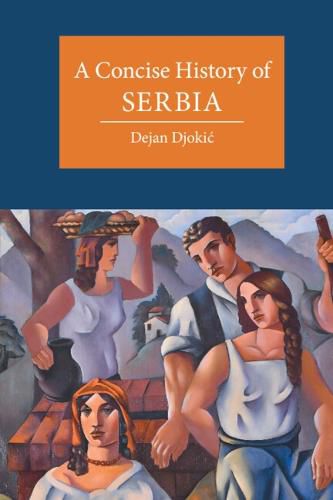Readings Newsletter
Become a Readings Member to make your shopping experience even easier.
Sign in or sign up for free!
You’re not far away from qualifying for FREE standard shipping within Australia
You’ve qualified for FREE standard shipping within Australia
The cart is loading…






This accessible and engaging book covers the full span of Serbia’s history, from the sixth-century Slav migrations up to the present day. It traces key developments surrounding the medieval and modern polities associated with Serbs, revealing a fascinating history of entanglements and communication between southeastern and wider Europe, sometimes with global implications. This is a history of Serb states, institutions, and societies, which also gives voice to individual experiences in an attempt to understand how the events described impacted the people who lived through them. Although no real continuity between the pre-modern and modern periods exists, Dejan Djokic draws out several common themes, including: migrations; the Serbs’ relations with neighbouring empires and peoples; Serbia as a society formed in the imperial borderlands; and the polycentricity of Serbia. The volume also highlights the surprising vitality of Serb identity, and how it has survived in different incarnations over the centuries through reinvention.
$9.00 standard shipping within Australia
FREE standard shipping within Australia for orders over $100.00
Express & International shipping calculated at checkout
This accessible and engaging book covers the full span of Serbia’s history, from the sixth-century Slav migrations up to the present day. It traces key developments surrounding the medieval and modern polities associated with Serbs, revealing a fascinating history of entanglements and communication between southeastern and wider Europe, sometimes with global implications. This is a history of Serb states, institutions, and societies, which also gives voice to individual experiences in an attempt to understand how the events described impacted the people who lived through them. Although no real continuity between the pre-modern and modern periods exists, Dejan Djokic draws out several common themes, including: migrations; the Serbs’ relations with neighbouring empires and peoples; Serbia as a society formed in the imperial borderlands; and the polycentricity of Serbia. The volume also highlights the surprising vitality of Serb identity, and how it has survived in different incarnations over the centuries through reinvention.